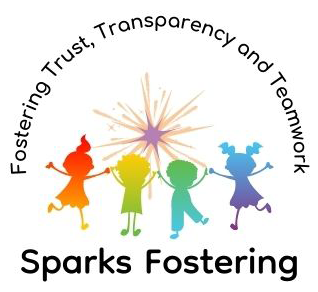What are the legal responsibilities of a foster parent?
The legal responsibilities of foster parents are outlined in the fostering regulations, fostering national minimum standards and in the Children Act volume 4: Fostering. Any failure to meet the needs of children in foster care would be a breach of law. It’s the role of the fostering provider to make sure that foster carers complete the following roles:
Comply with the fostering assessment, supervision and reviews
Fostering providers are legally obligated to carry out ongoing safeguarding checks of foster carers and to supervise the care offered to children by foster carers. If foster carers don’t comply with these requirements, it would be a breach of the regulatory requirements.
Complete training
Foster carers must attend core training which gives further information about the foster carer’s role. Also, foster carers must attend child-specific training, in order to meet the specific needs of children in their care.
Comply with care plans
Foster carers must work with the team around the child to formulate plans for children. Foster carers are expected to complete the tasks allocated to them on the children’s plans.
Provide sufficient space in the home
Fostering homes must have at least one spare bedroom for each child to be fostered. In some circumstances siblings may be able to share bedrooms. The home must also have enough space for the children to study and to relax and spend time with the family.
Support children’s health
Foster carers must take children to health appointments and promote the health of children like any good parent would do.
Support children’s education
Foster carers must support the children’s education, attend education appointments, support children with homework when it is required, and make plans for the child to continue in education when it is possible.
Meet the identity needs of children
Children’s identity needs must be respected and supported, even when the child’s identity is different to that of the foster carer.
Support contact and family time
For children who are can have contact with people who are important to them, foster carers must facilitate the contact. This may mean that carers drop off children to contact centres where children can have supervised contact with parents. Or children may have unsupervised contact with family members, former foster carers, friends, or others.
Encourage leisure activities
Foster carers must support children to continue existing leisure interests and to try out new leisure activities, as any good parent should do.
Promote friendships
Many children in care struggle to form and maintain friendships. Foster carers should support children to form and maintain healthy friendships.
Bullying should be identified and addressed.
Address any safeguarding concerns
If there are any safeguarding concerns, the foster carer must work with the team around the child to formulate a plan to reduce risk. Foster carers must adhere to the plans as far as possible.
Prepare children for independent living
Foster carers must support children to develop their independent living skills. When children are young, this may mean supporting the child to keep their room clean, help with household chores and join in cooking and baking.
When children are older, they should be supported with budgeting, and they should have a more clear idea of the challenges of independent living.
Respect the voice of the child
Foster carers must explore different ways for the child to express their views and wishes safely and productively. Foster carers are expected to respect the wishes of children and support the children with any requests which would not cause harm to the child and are feasible.
Foster carers are also expected to advocate for the child when this is needed.
Offer sufficient financial support
Foster carers are given a fee and allowance so that they are able to meet the financial requirements for caring for a child. Sparks Fostering is generous with foster carers so that foster carers can be generous with the children, which includes trips, gifts, rewards and meals out.
Comply with delegated authority
Foster carers aren’t legal parents of children, so they don’t have parental responsibility. Foster carers must clarify ‘delegated authority’ within the first few days of a child joining their home – this allows foster carers to offer suitable care for children, including being able to attend parents conferences at school, taking the child for health appointments and taking the child on holiday.






